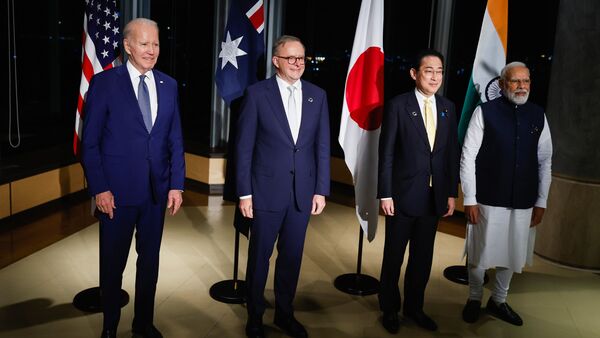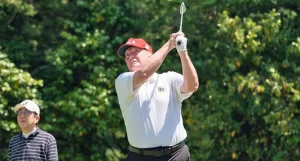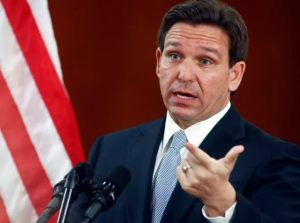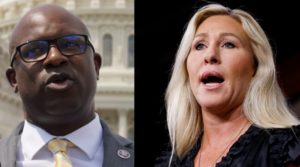Saturday, Vice President Joe Biden tried to reassure world leaders that the United States would not default on its debt while he was consulting with the heads of Australia, Japan, and India during a meeting of the so-called Quad partnership that had been hastily rescheduled because of the standoff in Washington over the debt limit. The meeting had been hastily rescheduled because of the debt limit standoff.
Biden began his third day in Japan at the annual Group of Seven meeting of the world’s most powerful democracies with a briefing from his staff on the most recent fits and starts in talks over how to raise the federal debt limit. He was hoping to avert an outcome that would ruffle the global economy and prove to be a boon to Beijing. Biden’s goal was to prevent an outcome that would ruffle the global economy and prove to be a boon to Beijing.
Additionally, the president crammed in meetings with the goal of countering China’s expansion throughout the Indo-Pacific region.
The members of the Quad had initially intended to come together the following week in Sydney, but they ended up doing so on the sidelines of the G7 summit instead. This allowed Vice President Biden to return to Washington early on Sunday in the hopes of finalizing an agreement to raise the United States’ borrowing limit before the government runs out of funds to pay its obligations.
Before a meeting with Australian Prime Minister Anthony Albanese, he stated, “The first meetings weren’t all that progressive, the second ones were, and the third one was,”
The carriers will then report back to the principals and let them know, “This is what we’re thinking about.” After that, individuals presented fresh assertions. I have not given up hope that we will be able to prevent a default and that we will be able to make some progress.
A fundamental conflict that has been shaping Biden’s administration has been reinforced as a result of the shorter trip: although he has been working to signal to the world that the United States is recovering the role of global leadership, at critical moments, domestic issues keep getting in the way.
Biden had, up until Saturday, for the most part avoided the public glare at the summit, eschewing the opportunity to make major public pronouncements and departing Friday night’s leader dinner early.
He has instead been spending his time in a room next to his hotel suite that has a video monitor in it. There, advisers in Washington have been keeping him informed of the back-and-forth of the debt ceiling discussions.
Jake Sullivan, who serves as the national security advisor, admitted that leaders from other countries have questioned Joe Biden about the impasse in Washington.
Karine Jean-Pierre, the president’s press secretary, stated that there is not fear, despite the fact that there is considerable interest in how the president will handle a domestic dispute that has international repercussions. At least, this is not the case at this time.
“It’s not a hair-on-fire type of situation,” she reassured him.
In place of the postponed trip to Australia, Vice President Biden met with Australian Foreign Minister Anthony Albanese on the sidelines of the conference. U.S. authorities have stated that the trip would be rescheduled, and Vice President Joe Biden has extended an invitation to Albanese to pay a state visit to the United States.
Biden apologies for bypassing Australia. Albanese stated that he was aware of the situation and understood it.
He told Biden, “I would have done exactly the same thing,” adding, “I’m very much looking forward to the state visit.” He was referring to the state visit.
As each nation works to reduce its dependency on China as a source of supplies, the leaders came together to sign a treaty that reaffirms their commitment to strengthening their collaboration on the research and production of the raw materials used in clean energy technology.
In addition, they published a joint statement in which they outlined new areas of collaboration in the realms of space, commerce, and military.
A crucial counterpoint to the financing and building that China has been giving has been the G7 leaders sitting together to discuss their investments in infrastructure in less advanced nations. These discussions took place during the G7 leaders’ meeting.
Biden stated that the United States has been successful in attracting investments totaling over $30 billion to far, “and we’re just getting started.”
During the evening session of the complete meeting with all of the Quad leaders, Vice President Biden reiterated his regrets for having to relocate their get-together to Japan.
Antony Blinken, the Secretary of State of the United States of America, will represent the United States of America at the summit of Pacific Island nations that will take place on Monday in Papua New Guinea.
This presidential trip, along with the one before it, was canceled so that Vice President Biden could return to Washington faster.
The visit by Vice President Biden would have been the first trip to the country by a sitting President of the United States. The United States and China are engaged in a vigorous courtship of those nations as part of their competition for influence in regions of the world that are critical for the protection of maritime channels.
Recognizing that high levels of trade with China have become more of a risk than an opportunity for mature countries, Vice President Biden and other world leaders came to an agreement in Hiroshima on a shared framework for building their own economic resilience.
According to Sullivan, the leaders of the G7 countries have acknowledged that “we do seek to cooperate with China on matters of mutual interest.” In addition, that we will make efforts to resolve the major issues that we have with China in a variety of domains.
He echoed a term that is frequently said by leaders of the G7, stating that the organization is working to “de-risk, not decouple from China.”
On Saturday night, Vice President Joe Biden and First Lady Jill Biden were guests at a dinner hosted for G7 leaders and other officials who were in attendance at the conference.





